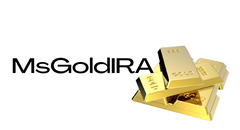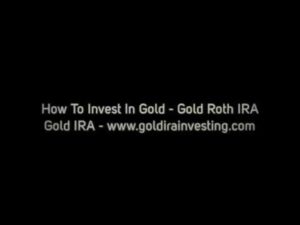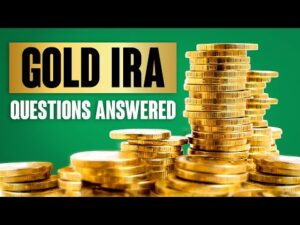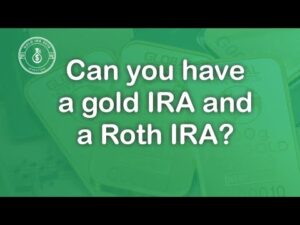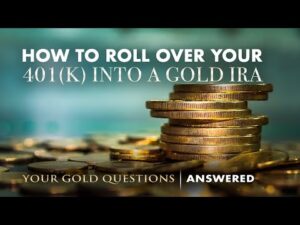
Peter Schiff's Spot Bitcoin ETF Outlook
Gold bug and economist Peter Schiff has issued a warning regarding spot bitcoin exchange-traded funds (ETFs), stating that they are now in bear markets. Schiff specifically referred to the Proshares Bitcoin Strategy ETF, which has seen a decrease of over 50% in the past two years. He predicts that individuals who have invested in the recently approved spot bitcoin ETFs will face even greater losses.
Schiff's outlook on spot bitcoin ETFs was shared through multiple posts on the social media platform X this week. The price of bitcoin initially rose above $47K in anticipation of the spot bitcoin ETF approval by the U.S. Securities and Exchange Commission (SEC). However, following the approval, BTC experienced a decline, dropping below $40K on Monday and further to $39K on Tuesday. Schiff described this trend as all spot bitcoin ETFs entering bear markets, defined as a drop of 20% or more from their peak.
He specifically highlighted the Fidelity Wise Origin Bitcoin Fund (FBTC), which has suffered a 32% decrease. In another post, Schiff mentioned the Proshares Bitcoin Strategy ETF (BITO), which tracks bitcoin futures and was launched in October 2021. BITO started trading at $40.88 and has since dropped to a low of $19, representing a decrease of over 50% in a span of two years. Schiff believes that those who have invested in any of the 11 spot bitcoin ETFs will experience even greater losses. As of now, BITO is trading at $19.04, down nearly 52% since its inception.
After bitcoin's price fell below $39K on Tuesday, Schiff stated that the new bitcoin ETFs are not generating additional demand but rather shifting it. Investors who may have purchased actual bitcoin or bitcoin-related equities like Microstrategy stock (MSTR) or Grayscale's bitcoin trust (GBTC) are now opting to invest in the new ETFs instead. Schiff believes that rearranging investments will not prevent the overall decline of bitcoin.
Schiff also noted that Coinbase stock (COIN) is one of the major losers in the new bitcoin ETF landscape. Despite Coinbase serving as a custodian for bitcoin held in these ETFs, speculators who previously traded bitcoin through Coinbase are now trading the ETFs. Additionally, individuals who bought COIN as a proxy for bitcoin are now purchasing the ETFs. On Monday, JPMorgan downgraded Coinbase stock from Neutral to Underweight, setting a price target of $80. As of now, COIN is trading at $124.19.
Earlier this month, Schiff warned that spot bitcoin ETFs would lead to a selloff by speculators and minimal institutional demand. He also expects Gary Gensler, the chairman of the U.S. Securities and Exchange Commission (SEC), to introduce strict crypto regulations that would further decrease the price of bitcoin.
What are your thoughts on Peter Schiff's warning regarding spot bitcoin ETFs? Share your opinions in the comments section below.
Frequently Asked Questions
How to Open a Precious Metal IRA
It is important to decide if you would like an Individual Retirement Account (IRA). Once you have decided to open an Individual Retirement Account (IRA), you will need to complete Form 806. For you to determine the type and eligibility for which IRA, you need Form 5204. This form should be completed within 60 days after opening the account. Once this is done, you can start investing. You can also choose to pay your salary directly by making a payroll deduction.
You must complete Form 8903 if you choose a Roth IRA. Otherwise, it will be the same process as an ordinary IRA.
To be eligible to have a precious metals IRA you must meet certain criteria. The IRS requires that you are at least 18 years old and have earned an income. You cannot earn more than $110,000 annually ($220,000 if married filing jointly) in any one tax year. Contributions must be made on a regular basis. These rules apply to contributions made directly or through employer sponsorship.
An IRA for precious metals allows you to invest in gold and silver as well as platinum, rhodium, and even platinum. However, you won't be able purchase physical bullion. This means you won't be allowed to trade shares of stock or bonds.
You can also use your precious metals IRA to invest directly in companies that deal in precious metals. This option is available from some IRA providers.
However, investing in precious metals via an IRA has two serious drawbacks. First, they aren't as liquid than stocks and bonds. This makes them harder to sell when needed. Second, they are not able to generate dividends as stocks and bonds. You'll lose your money over time, rather than making it.
What is the tax on gold in Roth IRAs?
The tax on an investment account is based on its current value, not what you originally paid. If you invest $1,000 in mutual funds or stocks and then later sell them, all gains are subjected to taxes.
You don't pay tax if you have the money in a traditional IRA/401k. You pay taxes only on earnings from dividends and capital gains — which apply only to investments held longer than one year.
The rules that govern these accounts differ from one state to the next. Maryland's rules require that withdrawals be taken within 60 days after you turn 59 1/2. In Massachusetts, you can wait until April 1st. New York has a maximum age limit of 70 1/2. To avoid penalties, plan ahead so you can take distributions at the right time.
Who owns the gold in a Gold IRA?
The IRS considers anyone who owns gold to be “a form money” and therefore subject to taxation.
You must have at least $10,000 in gold and keep it for at most five years to qualify for this tax-free status.
Owning gold can also help protect against inflation and price volatility, but it doesn't make sense to hold gold if you're not going to use it.
If you plan to sell the gold one day, you will need to report its worth. This will affect how much capital gains tax you owe on cash you have invested.
It is a good idea to consult an accountant or financial planner to learn more about your options.
Statistics
- If you take distributions before hitting 59.5, you'll owe a 10% penalty on the amount withdrawn. (lendedu.com)
- Indeed, several financial advisers interviewed for this article suggest you invest 5 to 15 percent of your portfolio in gold, just in case. (aarp.org)
- Gold is considered a collectible, and profits from a sale are taxed at a maximum rate of 28 percent. (aarp.org)
- If you accidentally make an improper transaction, the IRS will disallow it and count it as a withdrawal, so you would owe income tax on the item's value and, if you are younger than 59 ½, an additional 10% early withdrawal penalty. (forbes.com)
- You can only purchase gold bars at least 99.5% purity. (forbes.com)
